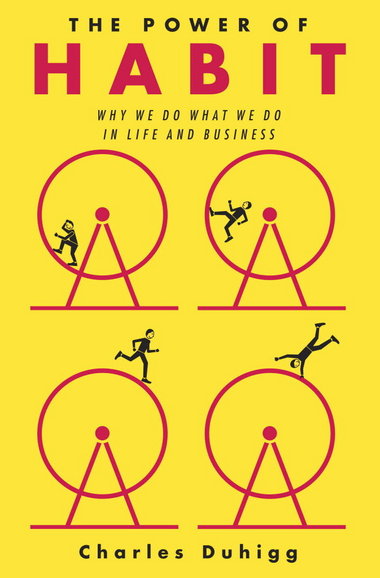By Tom Peterson
It’s through repetition that we rewire our brains. Doing something over and over, no matter how small, has a huge power. In The Power of Habit, Charles Duhigg, says we have a limited amount of will power each day. But after we turn something we want to do into a habit, that limited will power can be used somewhere else. As your daily or weekly act becomes a habit, you have unleashed a life-changing power. Duhigg talks about why it’s so hard to develop new exercise or eating habits:
Once we develop a routine of sitting on the couch, rather than running, or snacking whenever we pass a doughnut box, those patterns always remain inside our heads. By the same rule, though, if we learn to create new neurological routines that overpower those behaviors—if we take control of the habit loop—we can force those bad tendencies into the background…. And once someone creates a new pattern, studies have demonstrated, going for a jog or ignoring the doughnuts becomes as automatic as any other habit.
Norman Vincent Peale said “Repetition of the same thought or physical action develops into a habit which, repeated frequently enough, becomes an automatic reflex.”
The Will to Believe
Charles Duhigg, describes how philosopher William James suffered a long bout of self-doubt and depression, including thoughts of suicide.
Two months later, James made a decision. Before doing anything rash, he would conduct a yearlong experiment. He would spend twelve months believing that he had control over himself and his destiny, that he could become better, that he had the free will to change. There was no proof that it was true. But he would free himself to believe, all evidence to the contrary, that change was possible. “I think that yesterday was a crisis in my life,” he wrote in his diary. Regarding his ability to change, ‘I will assume for the present—until next year—that it is no illusion. My first act of free will shall be to believe in free will.
Over the next year, he practiced every day. In his diary, he wrote as if his control over himself and his choices was never in question… [He turned his life turned around.]
Later he would famously write that the will to believe is the most important ingredient in creating belief in change. And that one of the most important methods for creating that belief was habits. Habits, he noted, are what allow us to “do a thing with difficulty the first time, but soon do it more and more easily, and finally, with sufficient practice, do it semi-mechanically, or with hardly any consciousness at all.” Once we choose who we want to be, people grow “to the way in which they have been exercised, just as a sheet of paper or a coat, once creased or folded, tends to fall forever afterward into the same identical folds.”
If you believe you can change—if you make it a habit—the change becomes real. This is the real power of habit: the insight that your habits are what you choose them to be. Once that choice occurs—and becomes automatic—it’s not only real, it starts to seem inevitable, the thing, as James wrote, that bears “us irresistibly toward our destiny, whatever the latter may be.”
Visit the full Power of Repetition page.


[…] Check out a different blogger’s post on Duhigg’s book regarding creating habits through repetition here. […]